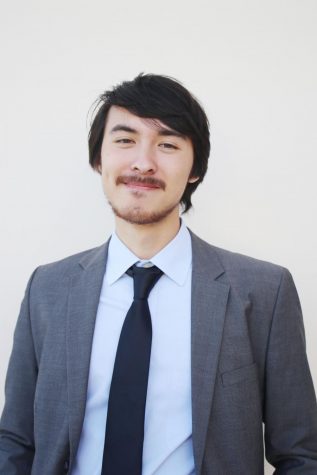Carlos Zuniga woke up at 4 a.m. 30 minutes later, he had begun the four-hour drive from Porterville to La Mirada—a trip he plans to make again next year with some members of his church, Iglesia del Nazareno.
But Zuniga did not mind the drive. He wanted to learn more about the Holy Spirit from a man who had redirected the course of his life, so he needed to reach his destination: the 2018 Biola Hispanic Conference.
THE HOLY SPIRIT MOVES
Zuniga was one of the almost 500 people who went to the 39th annual conference on April 7 to hear director of the Center for the Study of the Work and Ministry of the Holy Spirit Today Oscar Merlo speak on this year’s theme of the Holy Spirit. Roughly five years ago, Zuniga heard Merlo serve as a translator at a conference. Struck by Merlo’s speaking, Zuniga felt the call of God moving him to pursue the same field. Zuniga heeded that call and currently serves as a translator at his own church.
So when Zuniga heard Merlo would give the keynote presentations at the Hispanic Conference, he knew he could not miss Merlo’s speeches on the identity of the Holy Spirit and its vital importance in ministry. He feels the conference has opened his eyes to the work of the Holy Spirit.
“I see a movement in my church that wasn’t there before. I’m not saying this was before the conference or after the conference, but I see it now, and I think the conference is helping me to prepare myself for more,” Zuniga said.
HISPANIC CHURCHES FORM COMMUNITY
Zuniga, who leads a men’s group at his church, plans to share what he learned with the other members. Merlo believes that for Hispanic churches, ministry starts in community.
“That moment when the service finishes, and you are doing the tacos, and you are having the coffee, and you’re having the rice, it’s formation, it’s the ministry formation time,” Merlo said. “It will be different than your traditional patristic way of forming life, which is the space of seeking for the inner peace, doing the solitude, the thinking. Hispanics are loud, and in that community, we’re being formed.”
Hispanic churches play a central role in their communities but they might not always receive recognition for their work, according to Merlo. He says the churches provide sanctuary spaces for immigrants, care for the children of single mothers and help youth get off drugs. He also believes the conference helps pastors of these churches prepare themselves for the work ahead.
For Zuniga, the conference has helped him see the movement of the Holy Spirit. Visiting Biola’s campus has also affected him in another way.
“In my city we don’t have a Christian university,” Zuniga said. “I came home with that aspect of saying: ‘Lord, if I’m not going to go to a Christian university, let my kids go.’”
Though Biola hosts the Hispanic Conference, director of the conference and former Biola professor Hugo Garcia believes that the university’s students did not always show evidence they were following the guidance of the Holy Spirit. The first step to rectifying the issue is returning to the Bible, according to Garcia.
“A daily time in the scriptures will change your perspective and the Lord will speak to you through the word by the Holy Spirit,” Garcia said.







